Shortly after Russia’s full-scale invasion, Sumy National Agrarian University (SNAU) was approached by local farmers struggling to assess war-related soil contamination and its impact on the food chain. In response, and with support from the Royal Agricultural University (UK), SNAU secured funding from Universities UK International to assess farmland and ecosystem damage in north-eastern Ukraine. Over 20 farms were surveyed, with tailored remediation strategies developed—laying the foundation for systemic recovery. Building on this, SNAU and RAU launched a UK-accredited Master’s in Sustainable Agriculture and Food Security, financially supported by Mozaik Fund. The programme addresses Ukraine’s urgent need for agri-environmental specialists to restore war-affected lands. In parallel, the universities developed a six-week practical training for soil remediation, prioritizing veterans and ATO/UFO participants. The course included soil sampling, pXRF analysis, GIS/drone mapping, and bioremediation techniques—empowering participants with employable skills while advancing Ukraine’s environmental recovery. By 2024, SNAU had partnered with The HALO Trust to assess soil safety after demining and collaborated with Syngenta to develop a farmer-focused manual on soil health and remediation. More than 2,000 farmers across six regions benefited from lab analyses and tailored strategies. This complex work has positioned SNAU as a national leader in crisis-responsive agri-environmental research. It exemplifies how academia can deliver swift, science-based support to rural communities—bridging humanitarian action, innovation, and education to build resilience and restore livelihoods in war-affected areas.

3rd PLACE
Ukrainian Social Innovation and Engagement Award Award
Recovery and Remediation of War-Polluted Soils: Academic Support for Rural Communities
3rd PLACE Ukrainian Social Innovation and Engagement Award Award
Sumy National Agrarian University - Ukraine
"Healing the Land, Empowering the People"
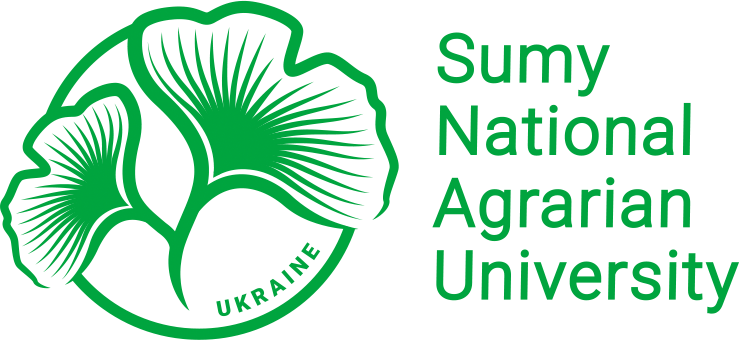
Engage on social media
(Project information)
Have a say and vote for this entry to win the People's Choice Award!
500 points per vote
Provide your email address and click on "vote". You will then receive an email that enables you to verify your vote by clicking on a link.
1500 points for each share/re-post; 500 points for each like
This entry has not provided any social media links for community voting.
Summary
Key People

Svetlana Lukash
Assoc Prof.
SNAU

Olga Bakumenko
Dean
SNAU

Elina Zakharchenko
Assoc Prof.
SNAU

Natalia Kapinos
Head of the Chair
RAU

Mark Horton
Pro Vice-Chancellor
RAU

David OConnor
David OConnor
RAU

Nicola Cannon
Professor
RAU

Olena Melnyk
Research Fellow
BFH
Acknowledgements
We gratefully acknowledge the support of the Department for Environment, Food & Rural Affairs (DEFRA), whose guidance and funding have been instrumental in the development and progress of this initiative. Their commitment to promoting sustainable agriculture, environmental safety, and international collaboration has enabled us to lay the foundation for a scalable, evidence-based soil testing and remediation project in Ukraine.
Images
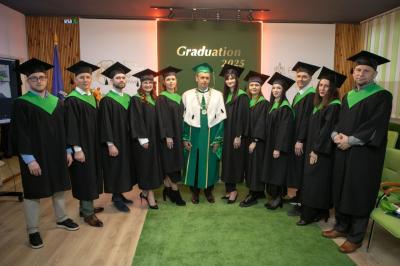
SNAU Image 1
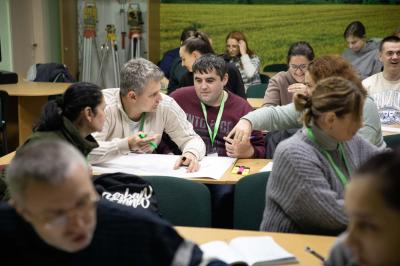
SNAU Image 2
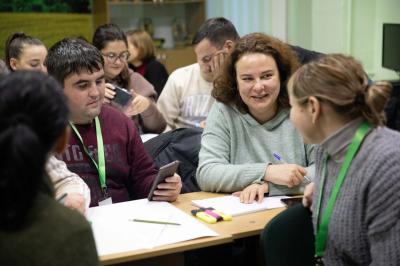
SNAU Image 3
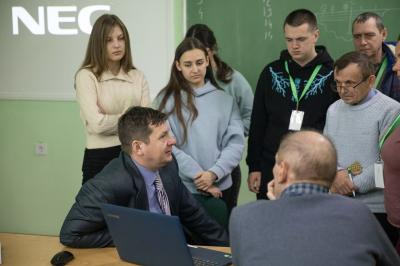
SNAU Image 4
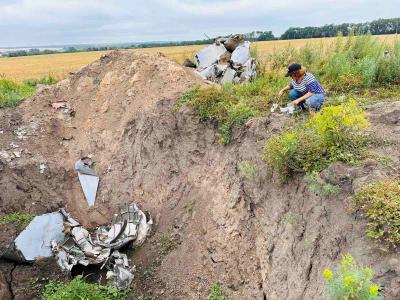
SNAU Image 5
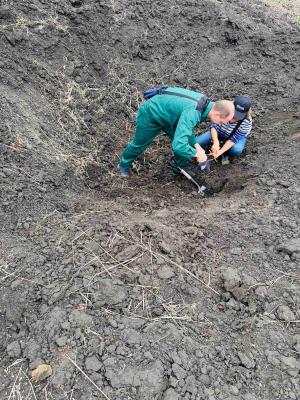
SNAU Image 6
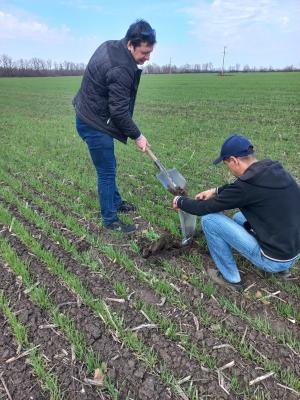
SNAU Image 7
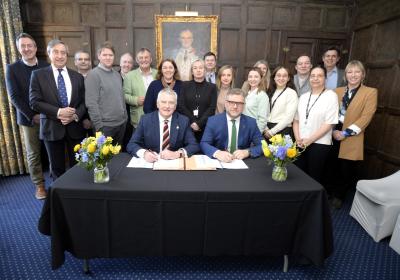
SNAU Image 8
IMPACT STORY
Impacting lifes
Since the beginning of Russia’s full-scale invasion, Sumy National Agrarian University has been at the forefront of supporting rural communities affected by war-related soil contamination. Our initiative has delivered tangible environmental, social, and economic benefits across six frontline regions of Ukraine.
In partnership with Syngenta, we published and widely distributed a Manual on War-Turned Soil Recovery, helping improve food safety and restore productivity across over 5,000 hectares of land. Through our manual more than 2,000 farmers have accessed knowledge for assessing soil health and implementing low-cost remediation strategies.
A key social impact lies in our training programme for war veterans and displaced persons. Through a six-week hands-on course, more than 50 participants gained employable skills in soil sampling, GIS mapping, and remediation. These include pXRF-based diagnostics, agroecological techniques, and bioremediation solutions tailored to contaminated sites. Many have since been hired by local farms or continued as independent consultants, turning their trauma into purpose.
Together with the Halo trust we tested soil from demined areas addressing the issue of post mining soil restoration. Our engagement is deeply rooted in local partnerships—with farmers, village councils, NGOs, the HALO Trust, Syngenta, and academia. We prioritize inclusivity, working with marginalized groups, and displaced families. Regular community workshops, co-created research, and open-access resources have made our approach both participatory and replicable.
This initiative demonstrates that with the right mix of science, solidarity, and local trust, it is possible to transform war-scarred land—and lives—into sources of healing and resilience.
LEARNINGS
Lessons learned
Our initiative stands out for its rapid, interdisciplinary response to a war-induced environmental crisis—a challenge for which no existing playbook existed. At the heart of our originality lies a unique integration of soil science, digital technology, and community empowerment, all mobilized under extreme conditions.
Faced with the destruction of farmland and the absence of state-led remediation systems, we developed a field-based, low-cost soil contamination assessment protocol tailored to Ukrainian rural realities. Using portable X-ray fluorescence (pXRF) devices, combined with GIS and drone-based mapping, we created real-time risk maps for war-polluted areas. This allowed smallholders—many of whom lacked technical backgrounds—to visualize contamination risks and adapt their farming practices accordingly.
We also introduced a transdisciplinary education model - Double Degree programme Sustainable Agriculture and Food Security - co-designed with the Royal Agricultural University (UK), to train the next generation of agri-environmental leaders in the frames. Our six-week training programme for veterans combined hands-on remediation, digital mapping, and local knowledge systems. What made it especially novel was its focus on veterans and displaced people—populations often excluded from formal training yet critical to Ukraine’s rural recovery.
FUTURE PLANS
What's coming?
To ensure the long-term impact and scalability of our initiative, we aim to build on the success of our soil testing project by developing a proof of concept for extending its application across Ukraine. The first step involves conducting a comprehensive field testing, using a grid-based sampling approach to assess contamination levels accurately. By identifying contamination hotspots through satellite imaging and ground tests, we will create a detailed map of affected areas, including a monitoring scheme to prevent future contamination spread.
We are establishing two laboratories (one in Sumy, already in place, and another in Kharkiv) to process the results and provide actionable insights into soil pollution, including chemical, physical, and mechanical changes. Furthermore, we will develop tailored, carbon-friendly remediation techniques for the most heavily impacted areas.
Looking beyond the 25/26 fiscal year, we plan to expand the project to address other forms of pollution, such as groundwater contamination. A key part of our strategy involves training soil testing experts from rural areas, empowering local communities to tackle soil pollution and contribute to broader gender and social inclusion goals.
Our research will be published with both English and Ukrainian translations, allowing us to share our findings widely. Ultimately, we aim to scale up this initiative across Ukraine, driving positive environmental impact and fostering sustainable agricultural practices nationwide.

